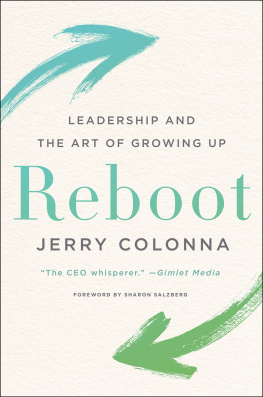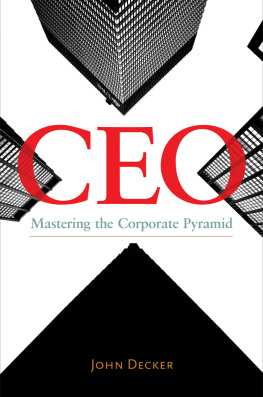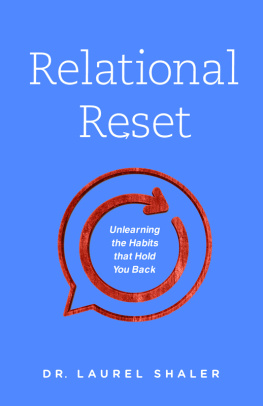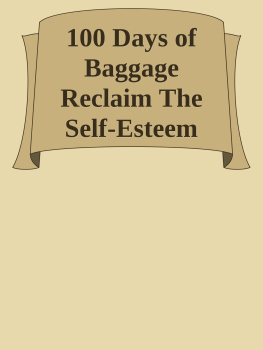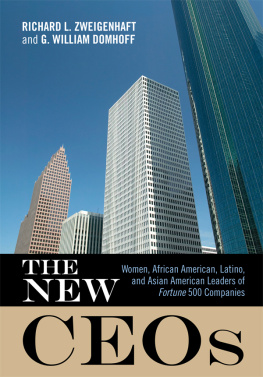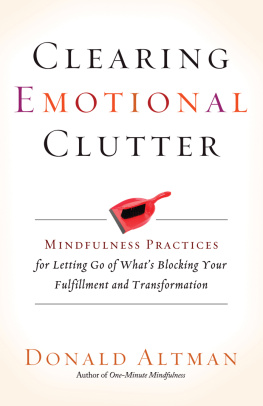Contents
To Sam, Emma, and Michael: May you always feel loved, safe, and that you belong. This is for you.
To Dr. Avivah Sayres: You were right; I did have it in me.
I first met Jerry at a dinner party hosted by a mutual friend, Jeff Walker. It was the kind of dinner party at which a single topic was put to the entire group for discussion. That night each of us was asked to describe a meaningful encounter with contemplative practice.
We listened quietly as the rotation went around the table. Jerry was up before me, and when he spoke, he referred to a very difficult period in his life, one in which a book called Faith, which I had written, was among the resources that had helped him. The word faith, as I had used it, did not mean belief or doctrine or dogmaI saw faith as being about connectionbut our ability to connect to often hidden sources of strength within us, and our ability to connect to a picture of life bigger than just the immediate circumstances we see before us.
By the time Jerry finished speaking, he was crying, and I was crying, too. It has always meant a lot to me when someone appreciates Faith. Faith had been a difficult book for me to write. It was the story of my own faith journey, and it demanded revelations of my deepest heart values, descriptions of my traumatic childhood, memories of my most significant moments of despair, and a vulnerability about things I somehow never found myself talking about ordinarily. My guide throughout that experience had been a quotation from the writer Dorothy Allison: Write the story that you were always afraid to tell. I swear to you that there is magic in it, and if you show yourself naked for me, Ill be naked for you. It will be our covenant. Or, as a writer friend of mine urged me one stuck day, Just tell the truth.
Jerry and I became good friends, and I was honored when he asked me to write this foreword. As soon as I began reading Reboot: Leadership and the Art of Growing Up, I saw his authenticity, compassion, and almost eerie acuteness of perception leap right off the page. I realized, He really did tell the truth. Thats what makes this book a generous and important offering.
Imbuing leadership with depth, resolve, congruency, and resilienceas Jerry describes in the following pagesinevitably involves discovering the adult within us: the capacity to face fears, to care about ourselves and others in a rare and potent balance, to be radically honest, to inquire within, and to listen to others. We discover that adult capacity, in all its poignancy and tenderness, and we bring it into the light of day, and we nurture it and help it to grow.
For most of us, that capacity is often hidden in the shadows, and not just hidden, but intricately entangled with our persistent yet often hidden feelings of unworthiness, our certainty of defeat, our fragmentation, our sense of isolation and emptiness, and our sense of overwhelm coupled with our conviction that we can never rest. Jerrys gift is in helping us navigate that landscapeto lean into that shadowy world and capture the treasures held there, all the while learning to be both strong and kind to ourselves and to others.
If the book you are writing is asking honesty and clear discernment of the reader, offering a path to a fulfilling and true and liberating life change, then you cant write from a supercilious perch or make yourself immune to self-revelation or imply that you have never struggled or had any difficulty perfectly manifesting the qualities you are talking about. You could try, of course, but it would show. What shows in contrast, in Jerrys book, is his own stripping away of armor or defensiveness or obfuscation. I could sense the validity in the comment one of Jerrys friends had made to him: Writing this book is gonna kick your butt. I bet it did. Actually, I saw it did.
Thats the beauty of determining if you are really going to speak from the heart: no imparting knowledge from on high, no separation from the many dilemmas and yearnings for success and even anguish of your audience. Its a powerful book, and a truly useful one, because Jerry kept that covenant. He got naked. He told the truth.
When Jerry first asked me to write the foreword, I was honored but uncertain. I asked, Why not a mogul, a famous business success? He replied that this wasnt an ordinary business bookit reconfigures notions of success itself and ideas of who we are and what would make us happy. It teaches us how, above all things, to be real. The journey laid out is a path to equanimity, or peace, which is priceless. The book is genuinely a transmission, heart to heart.
Sharon Salzberg
May all beings enjoy happiness and the root of happiness.
May we be free from suffering and the root of suffering.
May we not be separated from the great happiness devoid of suffering.
May we dwell in the great equanimity free from passion, aggression, and prejudice.
A Buddhist prayer to cultivate the four immeasurables: Lovingkindness, Compassion, Empathy, and Equanimity
I didnt set out to write a book about growing up. But, as those whove attempted to get their thoughts down on paper know, the true nature of the book revealed itself after Id begun the excavations behind a simple question: What do I believe to be true about work, leadership, and how we may live our lives?
The simplicity of the answer startled me: I believe that better humans make better leaders. I further believe that the process of learning to lead well can help us become better humans. By growing to meet the demands of the call to leadership, were presented with the chance to finally, fully, grow up.
Such revealed wisdom is often better than discovered wisdom. Its best, I suspect, because it comes from our lived experiences and the intrinsic and inherent depths of our being. Moreover, such a revelation is better because it transforms us; it is a process that can come about only from learning to be still, learning to listen.
Standing still and powering down allow us to start anew and, if you will, reboot our core operating and belief systems. Standing still and listening deeply to our heart as well as to the hearts around us are the necessary first steps toward moving past merely, numbly, surviving our lives. As poet Terry Tempest Williams advises, we learn, then, to speak and comprehend words of wounding without having these words become the landscape where [we] dwell. With such comprehending, we elevate the darkness of our lives, lead from the realm of the stars, and continue growing up.
I had a sense that this was true at the very first planning meeting for the book. Hollis Heimbouch, my editor (friend and teacher), and Jim Levine, my agent (friend and teacher), and I sat at a conference table in Jims office to plot out the book. Earlier, Jim had shown me around his office, including a small room filled with Muppet-like puppets. Glancing quickly at the collection, one caught my attention. Is that you? I asked Jim. He laughed and said, somewhat shyly and with pride, Yeah. Thats me.
Back at the table, we sat together. My heart raced. I squirmed uncomfortably while sweating. We talked about the books on leadership that we admired. We spoke of writers whod moved each of us. Jim spoke of the things Id written, the questions Id asked people to consider. I love your simple, powerful questions, like What is work? he said. I was pleased but still nervous. My eyes darted between the two of them.
Hollis had a hand on a large stack of papers; my work, old blog posts, and an interview or two. I love the way you provoke people. You get them to think differently.
As I looked from one to the other and back again, an insight struck me: Wait. You dont want me to write a book of advice about the five things every entrepreneur should know about leadership? Thenand this will surprise no one who really knows meI burst into tears.

